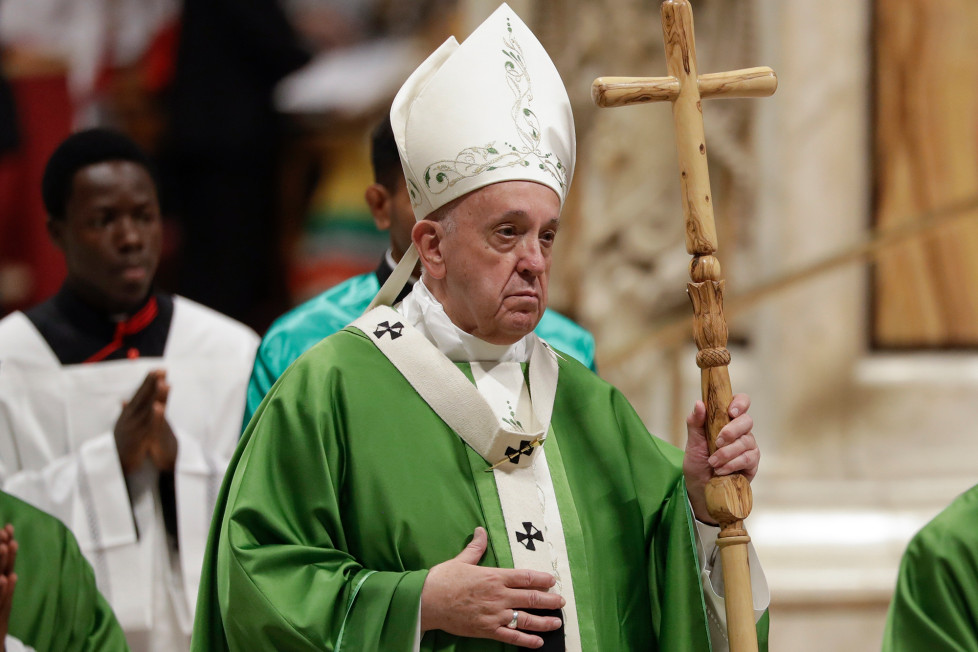The Vatican’s New Corruption Scandal
By JD Flynn
Jesus told his disciples: “Nothing is hid that shall not be made manifest, nor anything secret that shall not be known and come to light.” The teaching is playing out in real time at the Vatican, the heart of the church founded by the Nazarene. Prosecutors and gendarmerie staged a raid this month into the usually serene offices of the Vatican’s Secretariat of State, seizing computers and caches of documents from archives and employees. Two weeks later, the longtime head of Pope Francis’ security service resigned after leaked reports of alleged financial wrongdoing in the Vatican. Reports have emerged detailing the movement of Vatican money through slush funds across Europe — and a Vatican investment of more than $250 million into luxury London apartments, brokered through a financier who profited even while the Vatican’s investment tanked. Italian media also report that Vatican officials contemplated investing hundreds of millions in Angolan oil fields — money that comes mostly from an annual collection intended to support papal charities. Per the Italian reports, prosecutors have also found evidence of embezzlement, fraud, abuse of office and money-laundering among the Vatican’s upper echelon of managers. A first round of indictments in a Vatican City state court is expected to be handed down soon. Red-hatted princes of the church may eventually be implicated. All of this, of course, sounds like a plot recycled from “The Godfather Part III.” Financial scandal at the Vatican is nothing new. The Vatican’s official bank has faced repeated crises since it was founded in 1942, and the bank itself was created to curtail fiscal irregularity. But when Pope Francis was elected in 2013, it was with a mandate to clean up finances. His efforts began well: The pope regularized accounting procedures, committed to European anti-corruption standards, and by 2016, the Vatican had contracted the global accounting giant PriceWaterhouseCoopers to conduct the first serious external audit in its history. But the pope’s reform project was stymied at every turn by seasoned Vatican bureaucrats with more influence and support than the group tasked with reforming their bureaucracy. A powerful Vatican official, Archbishop Giovanni Becciu, unilaterally canceled the planned audit in April 2016. The next year, the Vatican’s auditor-general was forced out, allegedly after he discovered financial improprieties on the part of his superiors. The figure who made the most progress on reining in Vatican graft — George Cardinal Pell — now sits in an Australian prison, after he was convicted of sexual abuse in a trial many Australian jurists found deeply suspect. Supporters of Francis’ efforts argue that this month’s raid, and the trials likely to commence soon, are evidence that the pontiff’s reform initiative is working. Then again, there’s the timing of the raid — ahead of the publication this week of an Italian journalist’s book detailing a much larger web of financial scandals at the Vatican. In light of the book, spinning the raid as a good sign isn’t easy. A financial scandal comes at a terrible time for the Catholic Church. While the church grows in the developing world, religious practice is declining in the United States and Europe, and the Catholic Church is especially feeling the effect. Last year’s Theodore McCarrick sexual scandal ignited a firestorm for the Roman church, leaving many Catholics in the West distrustful of hierarchs at home and in Rome. But the sexual-abuse scandal also points to the path forward for the church on financial reform: transparency and accountability. US Catholic bishops have learned that their parishioners expect them to tell the unvarnished truth about past misdeeds and present crises — and likewise expect them to be accountable to outside auditors and experts. Sunlight, as the saying goes, is the best disinfectant. Transparency is uncomfortable for a 2,000-year-old institution accustomed to governing itself. But it has become necessary for the Catholic Church. If saving souls is more important to Vatican bureaucrats than saving face, the church must soon open her ledgers to experts — with full transparency about the results. The path of reform called for by Pope Francis and charted by Cardinal Pell must continue, regardless of the opposition. JD Flynn is editor-in-chief of the Catholic News Agency. Twitter: @JDFlynn
|
.
Any original material on these pages is copyright © BishopAccountability.org 2004. Reproduce freely with attribution.
